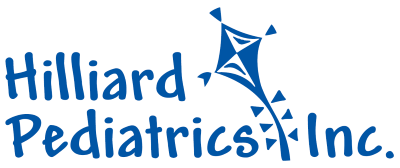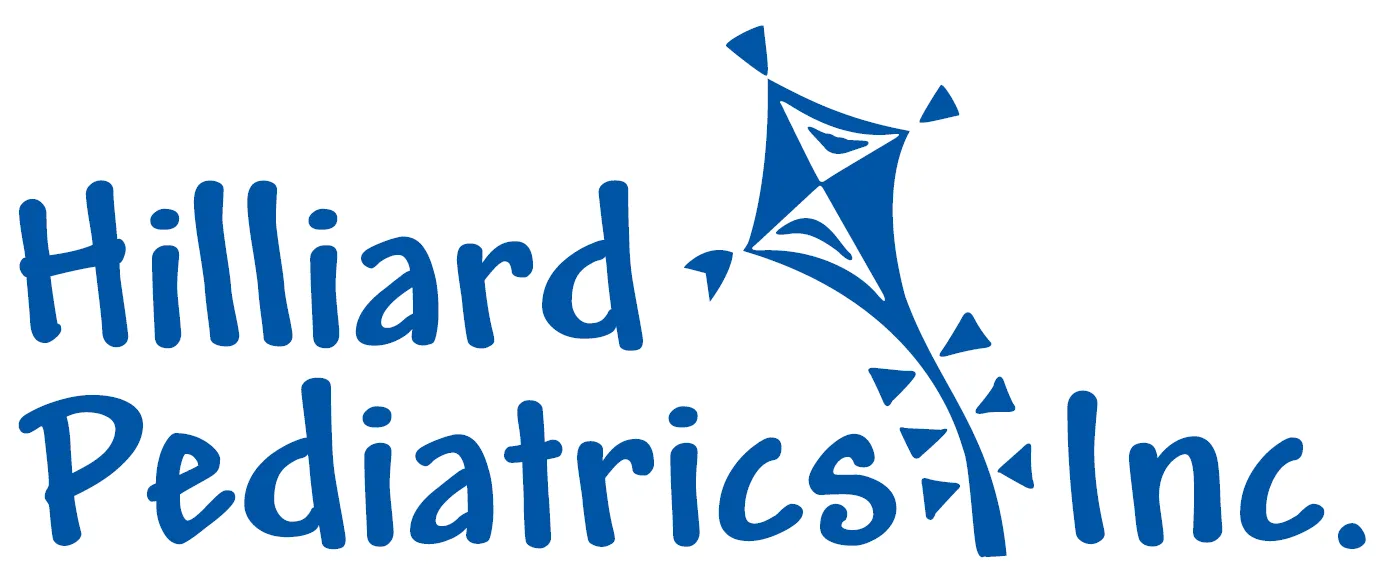Treatment for Attention Deficit Disorder
Hilliard Pediatrics, Inc. - Dr. Tim Teller, MD
Introduction
Prescription medications are very useful in the treatment of Attention Deficit Disorder (ADD). They can help a child with ADD improve on their educational and social successes. No medicine or treatment can cure ADD. However, medications can greatly reduce the troublesome symptoms of ADD such that a child may better reach their potential.
What to Expect From the Medications
- Medications for ADD can:
- Decrease activity level: sit still longer; less running and climbing
- Increase ability to focus: improve attention; listen to people longer; more accurate work (including handwriting)
- Decrease impulsiveness: think before acting; follow rules better
- Decrease reactivity: less aggression
- Medications for ADD cannot:
- Teach good behavior
- Make you smarter: grades and school performance will likely improve significantly, but the medications have simply reduced the ADD symptoms to allow one's own natural intelligence to be expressed.
- Motivate the child
- Make a child happy
- Teach somehow how to deal with anger or frustration
Goals for the Medications
- Maximize school performance by decreasing symptoms of ADD/ADHD.
- Minimizing any side effects of the medications.
- Better social interactions with others.
- Convenient dosing (often possible).
- Improved self-esteem (this often occurs if the first 4 occur).
What Types of Medications
Stimulants
The most commonly used medications for ADD/ADHD are stimulants. These include Concerta®, Metadate CD®, Ritalin®, Quillivant XR, and Daytrana® (methylphenidate), Focalin® and Focalin XR® (dexmethylphenidate), Adderall® and Adderall XR® (mixed-salts of an amphetamine), and Vyvanse® (amphetamine). They are believed to work in those with ADD/ADHD by stimulating the area of the brain that controls attention span and impulsiveness. Each of these medicines will begin working quickly (usually within the first week) once the right dose is found for your child (this can vary, independent of age and size). With each of these medications, there is a 7 or 8 out of 10 chance that a child will improve, a less than 2 out of 10 chance that a child will show no change, and a less than 1 in 10 chance that your child will worsen. If one of these medications is not helping, often a different stimulant will help. These medications are likely to work well with children with or without hyperactive/impulse problems.
In children, the stimulants' major side effects are loss of appetite, problems going to sleep, headaches, and stomachaches. Each of these occurs in only a small number of children and tend to improve the longer one takes the medication. Upon starting the medicine, the average child will actually lose approximately 2 pounds of weight before regaining that weight and thereafter growing normally. Children who are taking too much stimulant medicine are often irritable, sleepy, and dazed. Some children have a "rebound" effect for 1-2 hours when the medication wears off. During this time they may be very active, irritable, and difficult to get along with. Often these children improve with an added dose before their rebound time occurs (note: the newer longer-acting medications are less likely to cause a rebound effect). In children with tics or children predisposed to tics or Tourette's syndrome, stimulants may make this condition worse. Only a few children on stimulants will have their growth slowed by the medicine. Most children taking a stimulant will grow normally. Those that do are likely going to be about 3/4 of an inch shorter than without the stimulants. If a child's growth is being effected, we will discuss ways of decreasing this effect.
All of these medications are controlled medications. A written prescription is required each month. This requires that you call our office during regular office hours Monday through Friday when you have just a few days left of medicine. We will then refill and electronically send the prescription to the pharmacy. Sometimes the need for a refill will fall on the date of a visit to the office (check-up or ADD/ADHD follow-up). If so, we will write the prescription(s) then. As much as possible, your primary care provider will be refilling the medication.
A few notes about controlled medications. We are required by law to periodically check a state-wide database of controlled prescriptions filled for that child. Controlled medications, by law, cannot be called into the pharmacy (even in an emergency).
Non-Stimulants
Strattera® (atomoxetine) is a non-stimulant medication that works in similar ways to the stimulant medications. Although the medication is not a stimulant, the positive and possible side effects are essentially the same as with the stimulants. Strattera® takes 2 weeks to begin working in your system to control the symptoms of ADD/ADHD. For children switching to Strattera® from a stimulant, we generally recommend that the child take BOTH medications for the first two weeks. After the first two weeks, they stop the stimulant and continue Strattera® thereafter. For children not being treated with a stimulant, we simply begin the Strattera® and should expect to see improvement with the child’s ADD/ADHD symptoms in 2 weeks. Strattera is not a controlled medication, therefore refills can be written on the prescription and sent to the pharmacy. Strattera® is a good option for children with ADD/ADHD.
Intuniv® is an extended-release form of guanfacine, a medication that has been available for years. This medication treats ADD/ADHD symptoms, but it is most effective for children with ADD/ADHD who are particularly disruptive, difficult to deal with, who argue with others frequently, and with temper outbursts. The dose is based on the weight, is taken once a day, and can take as long as 2 weeks to begin working.
Clonidine
This medication has three major uses for children with ADHD. First, it can be added to the stimulants if a child's hyperactivity and impulse control problems are not helped by the stimulants alone. This is especially true with children with oppositional-defiant disorder or similar symptoms. Secondly, it is used as a bedtime- only medicine in some children with ADD/ADHD if they are not falling asleep well. Clonidine is available as 0.1 and 0.2mg tablet. It is typically dosed at 1/2 - 1 tablet at bedtime only. Thirdly, it can used as the only treatment for ADHD. It is available as a long-acting medication called Kapvay®. It is taken once or twice daily.
Antidepressants
When a child does not respond to the stimulant medications, Strattera®, Intuniv®, or Kapvay®, the next groups of medicines used are the antidepressants. There is a 5 out of 10 chance that someone with ADD will improve on antidepressants. Impulse control and hyperactivity are the symptoms most likely to improve. These medicines typically only have to be taken once a day. These medicines typically take 2-4 weeks to begin taking effect. There are more side effects from antidepressants.
When Are Medications for ADD/ADHD Taken?
The easy answer is "when they are needed". No two children with ADD/ADHD are alike. Some children take their medicine just on school days, while others take their medicine every day. Some children take their medicine just once in the morning, while others take medicine every 3-5 hours throughout the day. Some children never seem to have any side effects from the medicine, while others need many adjustments in theirs because of side effects. Many children will only require the medicine during the school year, while taking a "medicine vacation" during summer vacation, spring break, and holiday (winter) break. Most children will have less symptoms of ADD/ADHD as they grow older. For every three children with ADD/ADHD, one will have essentially "grown out of it" by the time they are in middle school. Another one of those three will have by the time they finish high school. Below is a set of guidelines that may help you understand how adjustments are made for each child. Also included is information about how side effects are handled.
On a daily basis, the stimulant medications are all taken with breakfast. Any further daily doses are given later in the day depending on when they are needed. Strattera should be generally be taken with the largest meal of the day (for most children, dinner) to lessen how likely the medication is to cause an upset stomach. We will discuss with you when to take any other medications.
Guidelines
- If a child has mostly attention problems without hyperactive or impulse problems => medicine only on school days.
- If that child with attention problems now is not getting their homework done on weekends or has special occasions arise on weekends or holidays => as needed doses on weekend or holidays.
- If a child has problems with daily social interactions because of ADD => medicine every day unless special occasion.
- If the morning dose wears off during the school day => a dose is added during the school day (often around the lunch hour) or we increase the morning dose or we will switch to a different medicine.
- If the medicine has worn off before homework is done during the school week => adjustments can be made as with the above answer.
- If starting a new medicine or increasing a dose has resulted in severe headache, stomachache, sleep, or "rebound" problems => stop the medicine and call us during the next business day.
- If more mild problems with headache or stomachache are occurring when starting a new medicine or increasing a dose => continue the medicine (expect these side effects to go away or stop the longer your child takes the medicine).
- If "rebound" problems are regularly occurring => we will adjust the medicine dosing to reduce or stop the "rebound" by adding a late day dose or increasing the earlier dose.
- If a child cannot fall asleep at night because of their ADD/ADHD symptoms => a bedtime dose of clonidine is given or a dose of stimulant is added 1/2 - 1 hour before bedtime. Many children with ADD can and will sleep well with a recent dose of a stimulant in their system.
- If a child cannot fall asleep at night because of their ADD/ADHD symptoms => a bedtime dose of clonidine is given or a dose of stimuant is added 1/2 - 1 hour before bedtime. Many children with ADD can and will sleep well with a recent dose of a stimulant in their system.
- If a child cannot fall asleep at night because of a side effect of the medicine => we will discuss reducing the last dose of the day or giving a bedtime dose of clonidine.
- If a previous dose of medicine that had worked well is no longer working => we will discuss increasing the dose of the same medicine.
- If your child's mid-day appetite is poor but they are making up for it at other times during the day or if your child's appetite is poor on the days when taking the medicine but they do well on "medication holidays" and have continued to show good growth at the ADD follow-up visits => continue the medicine. Medicine adjustments can be made to maximize growth and appetite.
- If your child has not responded to stimulants or Strattera or the side effects have been significant despite medication adjustments => a referral to a child psychiatrist to discuss other treatment options is recommended.
References
Websites
- ADHD Information from Healthy Children and the AAP
- Children and Adults with ADHD
- ADHD Information from NAMI
- National Information Center for Children and Youth with Disabilities Information on ADHD
Books
- ADHD: What Every Parent Needs To Know, 2011 American Academy of Pediatrics book
- Taking Charge of ADHD: The Complete Authoritative Guide for Parents, 2013 by Russell Barkley.
Magazine
- ADDitude magazine -- a bi-monthly magazine about ADD/ADHD is available here.
Last Updated: 06/2019

